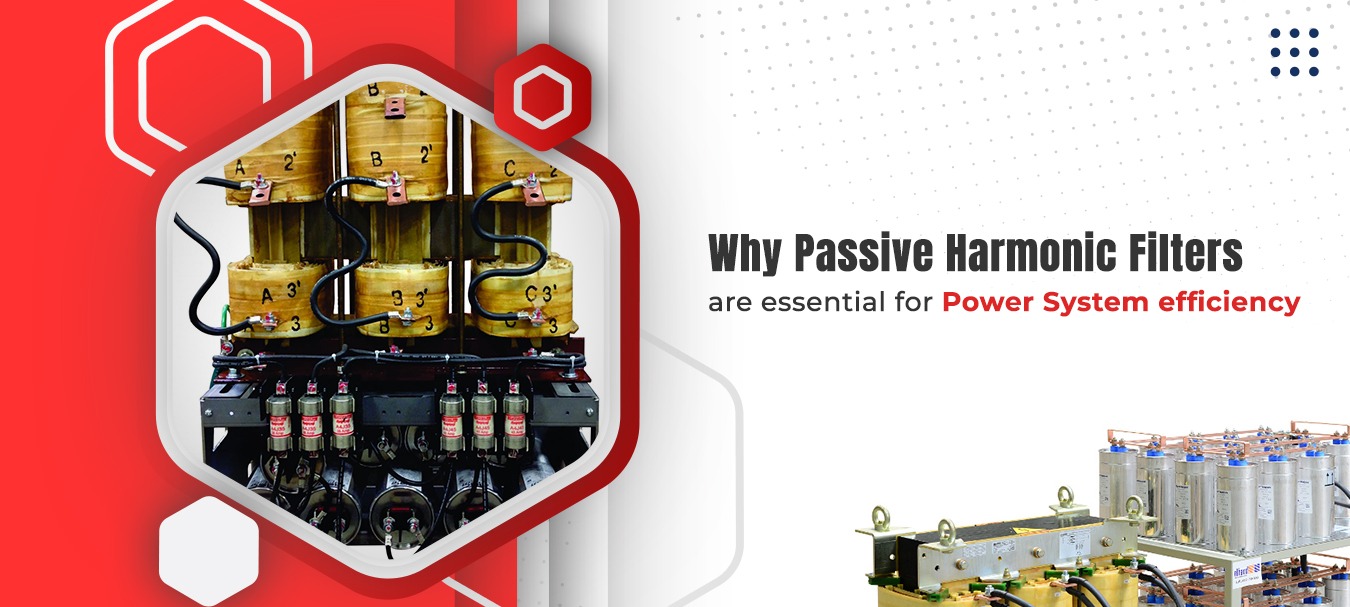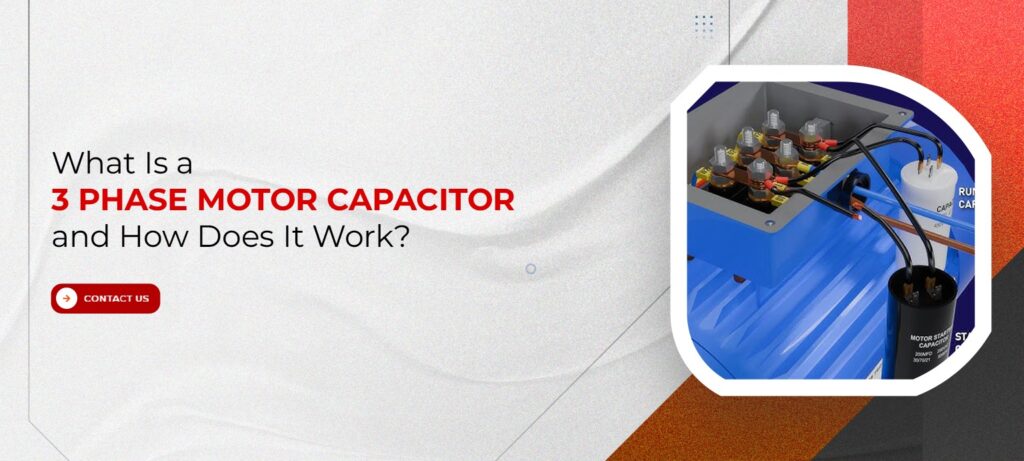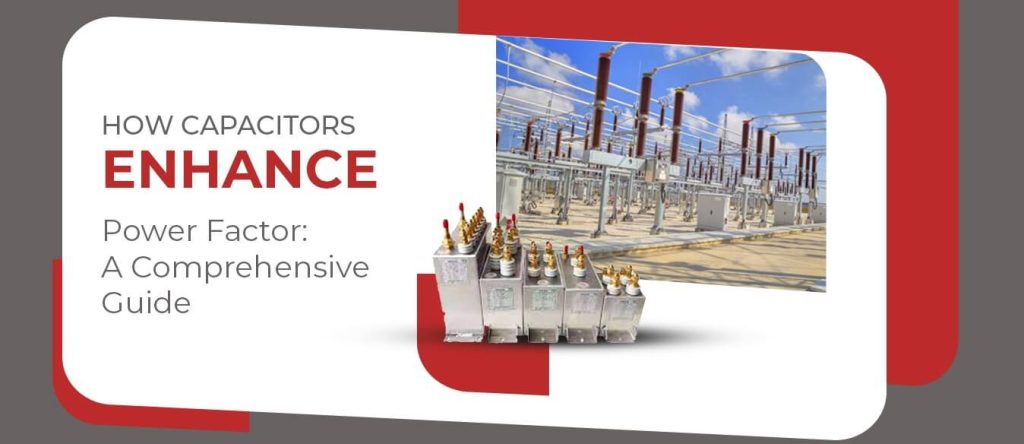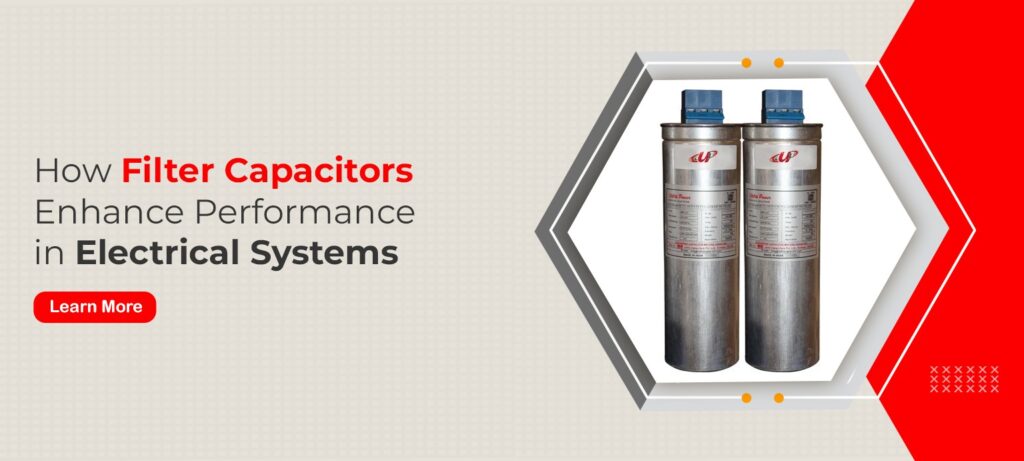Efficient power systems are the backbone of modern industries and commercial facilities, where electrical energy is expected to perform reliably and consistently. One of the major challenges in maintaining such efficiency is the presence of harmonics in electrical networks. Harmonics are unwanted distortions in the normal waveform of electrical power, often caused by non-linear loads such as variable frequency drives, computers, or industrial machinery. These distortions can lead to overheating, energy losses, reduced lifespan of equipment, and increased maintenance costs. To counter these issues, a passive harmonic filter plays a critical role by absorbing specific harmonic frequencies, ensuring smooth and stable power flow, and enhancing the overall system efficiency.
Understanding Harmonics in Power Systems
Harmonics occur when electrical currents or voltages deviate from the ideal sinusoidal waveform. This distortion is generally produced by non-linear electrical devices that draw current in abrupt pulses rather than in a continuous flow. These harmonic currents travel through the network, affecting other devices connected to the system. High levels of harmonics can increase power losses, cause excessive heating in transformers and cables, and interfere with sensitive equipment. By recognizing the harmful effects of harmonics, engineers have developed solutions such as passive harmonic filters to minimize these disruptions and protect critical infrastructure in industrial and commercial environments.
What is a Passive Harmonic Filter?
A passive harmonic filter is a network of electrical components, typically composed of inductors, capacitors, and resistors, designed to block or reduce unwanted harmonic frequencies in an electrical system. Unlike active filters, which dynamically adjust to changing harmonics, passive filters are tuned to target specific frequencies, offering a simpler and reliable solution for harmonic mitigation. When installed correctly, these filters help in reducing total harmonic distortion (THD), improving power factor, and ensuring the electrical system operates within safe parameters. The simplicity, durability, and cost-effectiveness of passive harmonic filters make them a preferred choice for many industrial applications.
Key Benefits of Using Passive Harmonic Filters
The adoption of passive harmonic filters provides multiple benefits that directly impact power system efficiency. First, they help in maintaining voltage and current quality by suppressing harmful harmonic frequencies. This reduces the risk of overheating in transformers, motors, and other electrical equipment, extending their lifespan. Second, by improving the power factor, passive filters contribute to lower energy consumption and reduced electricity bills. Third, these filters prevent malfunctions and errors in sensitive electronic devices, ensuring uninterrupted industrial operations. Lastly, passive harmonic filters are relatively easy to maintain, with no complex control systems or software requirements, making them a practical solution for long-term harmonic mitigation.
Applications in Industrial and Commercial Settings
Passive harmonic filters find extensive use across various industries and commercial facilities. Manufacturing plants, which often operate heavy machinery and variable frequency drives, benefit significantly from these filters by minimizing energy losses and protecting equipment. Data centers and IT facilities, where uninterrupted power supply is critical, rely on passive harmonic filters to maintain voltage stability and reduce interference. In commercial buildings, such filters improve energy efficiency, prevent equipment overheating, and ensure smooth operation of lighting, HVAC, and electrical distribution systems. By targeting the specific harmonics prevalent in each application, passive harmonic filters offer a versatile and reliable solution for power quality improvement.
Installation and Maintenance Considerations
Proper installation and maintenance of passive harmonic filters are crucial for achieving optimal performance. These filters must be carefully sized based on the system’s load characteristics and the specific harmonics that need mitigation. Incorrect sizing or installation can lead to resonance issues or insufficient filtering. Once installed, regular inspection of connections, capacitors, and inductors ensures the filter continues to operate effectively. Although passive harmonic filters require minimal maintenance compared to active solutions, periodic monitoring of total harmonic distortion and power factor is recommended to ensure long-term efficiency and reliability. This proactive approach allows facility managers to maintain a stable and efficient power system.
Final Thoughts
Harmonics pose a significant challenge to the efficiency and reliability of modern power systems, but they can be effectively managed through the use of a passive harmonic filter. By targeting specific harmonic frequencies, these filters reduce total harmonic distortion, improve power factor, extend equipment life, and enhance overall system efficiency. Their simplicity, cost-effectiveness, and reliability make them an indispensable component in industrial and commercial electrical networks. Understanding the role and benefits of passive harmonic filters is essential for engineers and facility managers aiming to optimize power quality, ensure energy efficiency, and maintain stable electrical operations in today’s demanding environments.
If you are an owner or manager of an industrial facility, manufacturing plant, or commercial establishment, and are looking to enhance the efficiency and reliability of your electrical systems while protecting your valuable equipment, Usha Power offers comprehensive solutions in the form of passive harmonic filters. At Usha Power, we provide expertly designed and industry-standard harmonic filter panels that are tailored to meet the specific needs of your facility. We focus on minimizing total harmonic distortion, improving power factor, and ensuring smooth operation of all connected electrical equipment. By choosing Usha Power as your trusted partner, we help you achieve a safer, more efficient, and highly reliable power system, allowing your operations to run seamlessly without interruptions. Our team ensures precise installation, on-going support, and practical guidance so that your investment in passive harmonic filters delivers measurable improvements in energy efficiency and system performance, giving your business a competitive edge while maintaining optimal electrical stability.





